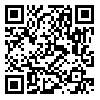Volume 1, Issue 1 (2009)
JHS 2009, 1(1): 1-46 |
Back to browse issues page
Download citation:
BibTeX | RIS | EndNote | Medlars | ProCite | Reference Manager | RefWorks
Send citation to:



BibTeX | RIS | EndNote | Medlars | ProCite | Reference Manager | RefWorks
Send citation to:
Ghaneirad M. A Sociological Analysis of the Formation of Empirical Methodology in the Islamic Period. JHS 2009; 1 (1) :1-46
URL: http://jhs.modares.ac.ir/article-25-6341-en.html
URL: http://jhs.modares.ac.ir/article-25-6341-en.html
National Research Institute for Science Policy
Abstract: (11834 Views)
This article, using a sociological perspective, attempts to understand the application of empirical methods in the Iranian-Islamic golden age, especially during 130-500 Hegri. It distinguishes different approaches to rational knowledge and laying emphasis on empirical science in the mentioned period. The theoretical framework of the present paper is the sociology of science, especially the interpretative sociology of science in the Weberian and Mertonian traditions. This framework provides the possibility of studying internal cultural factors, beyond cultural exchange and external transfer of scientific knowledge. The author, through studying the history of natural sciences and humanities at the Iranian-Islamic golden age, shows how applying empirical methodology of science to, for example, historical, geographical, and anthropological knowledge, have been influenced by the social interpretation of prophetic religion. In particular, it is indicated that the cultural elements of social belonging, equality and mutual understanding of Shoobieh ethics influenced the above mentioned areas of scientific endeavor.
Keywords: Science in Iran, Cultural penetration, Interpretative sociology of science, Social belonging, Equality, Mutual understanding, Science in Islamic period
Published: 2010/04/24
| Rights and permissions | |
 |
This work is licensed under a Creative Commons Attribution-NonCommercial 4.0 International License. |







